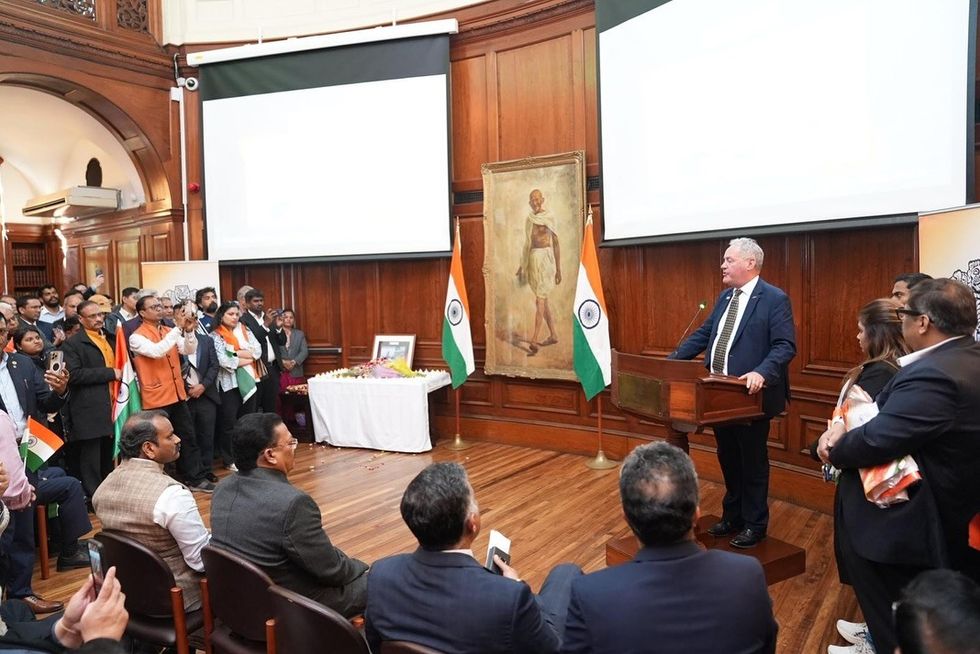MINORITY workers in the UK face a pay penalty of £3.2 billion because of their ethnic background, a new report has found.
Pakistani and Bangladeshi men (who are not graduates) face the biggest pay penalties at £1.91 an hour (14 per cent), while black male non-graduates face a pay penalty of £1.31 an hour (9 per cent), findings by the Resolution Foundation show today (27).
BAME (non graduate) women too experience a loss of income, the analysis shows, with pay penalties at 55p for Bangladeshi and Pakistani women (5 per cent), 61p for black women (6 per cent), and 44p for Indian women (4 per cent).
Kathleen Henehan, research and policy analyst at the Resolution Foundation, said:
“Black, Asian and minority ethnic (BAME) workers have made important gains in the labour market in recent years. However, many of Britain’s 1.6 million black, Asian and ethnic minority workers face significant disadvantages in the workplace.
“Black and ethnic minority workers still suffer significant pay penalties compared to white men and women doing the same types of jobs, and are collectively losing out on £3.2bn a year.”
The thinktank's research follows the McGregor Smith Review, which found if BAME workers were not discriminated against in the labour market, the potential benefit to the UK economy was estimated to be £24 billion a year, or 1.3 per cent of the GDP.
Prime minister Theresa May's race audit, which records the biases faced by minorities in all walks of life, prompted ministers to take action, asking large firms report on their BAME pay gaps.
However, the Resolution Foundation found that only three per cent of employers voluntarily reported their ethnic pay gaps, and called on the government to act to require large firms to report on this too.
Its report found that BAME workers have “long earned less”, on average, than white male workers, with the differences in the pay gap down to workers’ qualification levels and the types of jobs they do, among other factors.
The foundation said it “converted” these pay gaps into pay penalties by taking into account factors such as a worker’s occupation, contract-type, industry, education level and degree class in its calculations.
Its analysis revealed that even after accounting for these differences, black, Indian, Pakistani and Bangladeshi workers still faced significant pay penalties compared to white workers with identical characteristics doing the same types of jobs.
Black male graduates face the biggest pay penalties of all groups included in the research, with an average penalty of £3.90 an hour (17 per cent), while Pakistani and Bangladeshi male graduates face a pay penalty of £2.67 an hour (12 per cent).
Among female graduate workers, black women face the biggest pay penalty of £1.62 an hour (nine per cent).
In 2017, there were 154,000 black male graduate employees in the UK, 202,000 black male non-graduate employees, 152,000 Pakistani/Bangladeshi male non-graduate employees and 124,000 Pakistani/Bangladeshi male graduate employees.
Henehan said: “Despite substantial progress on educational attainment and employment rates, ethnic minority men and women of similar ages and education levels who were in similar jobs, industries and regions are paid billions of pounds less each year than their white counterparts.”
A government spokesperson said: "Diversity is good for businesses and this government is committed to ensuring the workplace works for everyone.
"We've introduced new laws to help companies ensure the make-up of their boards and senior management is representative of their workforces and we're currently consulting on proposals for mandatory ethnicity pay reporting as part of a series of measures to help employers tackle ethnic disparities in the workplace."
In October, the prime minister said: “Every employee deserves the opportunity to progress and fulfil their potential in their chosen field, regardless of which background they are from, but too often ethnic minority employees feel they’re hitting a brick wall when it comes to career progression.
“One year on from publishing the Race Disparity Audit, the government is delivering on its promise to explain or change ethnic disparities in all areas of society, taking action to support young people into work with funding of £90 million from dormant bank accounts , and acting on the recommendations of the Lammy review including by increasing diversity within prison officer recruitment.
“Our focus is now on making sure the UK’s organisations, boardrooms and senior management teams are truly reflective of the workplaces they manage, and the measures we are taking today will help employers identify the actions needed to create a fairer and more diverse workforce.”



















 Bob Blackman MP speaks during the event
Bob Blackman MP speaks during the event